The goal of the five friends – winemakers Guilherme Álvares Ribeiro, Jorge Roquette, Dirk Niepoort, Vito Olazabal and Cristiano van Zeller – was to put Portugal’s Douro Valley on the map. Since the formation of the group 21 years ago, the wineries have developed and grown, expanded their exports and achieved worldwide recognition for themselves and the region.
Now, the Douro Boys have morphed into a group of families spanning several generations – but still tied by the common goal of supplementing their famous port wines with top-quality reds and whites, to show the world the immense potential of the wines from the historic vineyard terraces along the length of the Douro River as well as the culture and beauty of the UNESCO World Heritage region.
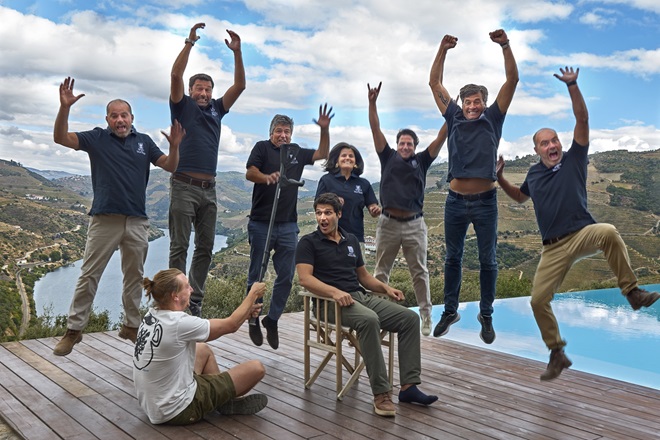
So, what’s next for the group? Well, it’s reinventing itself for the coming decades. After celebrating their 20th anniversary in Porto last year, the Douro Boys have rebooted for the next stage of their journey. Four of the five original family estates – Quinta do Vallado, Niepoort, Quinta do Crasto and Quinta do Vale Meão – are embarking on a new phase of promoting Douro wines with the next generation of “boys” and “girls”.
At Vallado, João Roquette Alvares Ribeiro now works alongside his father João and his cousin Francisco Ferreira in the project that his grandfather Guilherme founded.
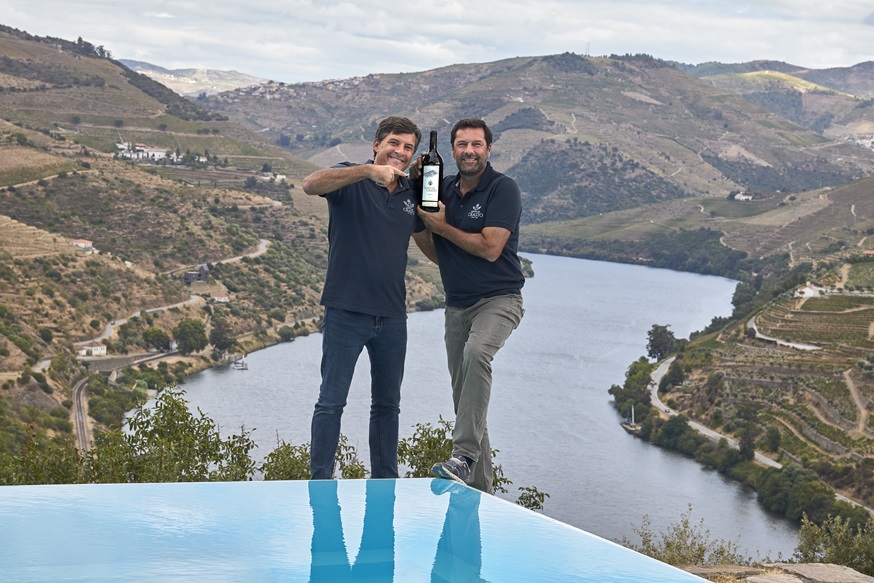
At Crasto (above) – number 15 in the World’s Best Vineyards list – Tomas and Miguel Roquette run the winery whose fame was created by their father Jorge.
At Niepoort (no70 in the new list), Daniel has taken over most of the responsibility for production from his father Dirk.
At Vale Meão (below), siblings Luisa, Jaime and Xito Olazabal now run the winery that has been made independent from Ferreira by their father Vito.
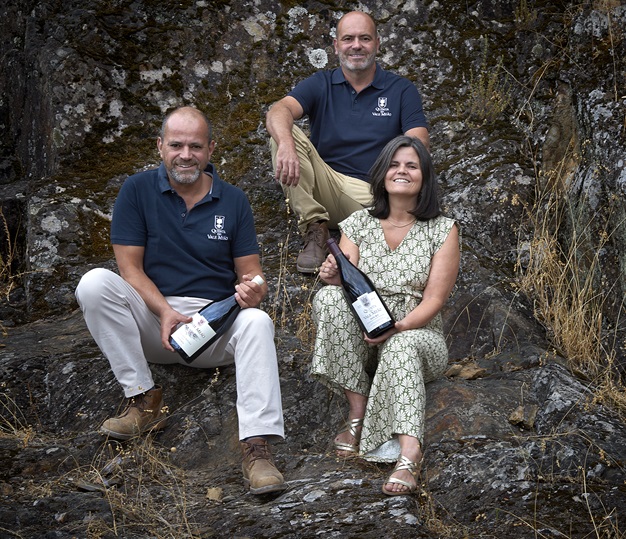
Meanwhile, the other founding member of the group, Van Zellers & Co, will step back from the Douro Boys at present to focus on promotional commitments for their winery and will not take part in the group’s marketing activities. This will allow Cristiano van Zeller and his daughter Francisca van Zeller to give priority to planned tastings of their own XIX The Rare Port Collection.
Changes in winemaking philosophy
But does the changing of the guard at the wineries herald a change in winemaking philosophies? We put the question to João Ferreira Álvares Ribeiro, CEO at Quinta do Vallado, and Daniel Niepoort, head winemaker at Niepoort.What’s your winemaking philosophy?
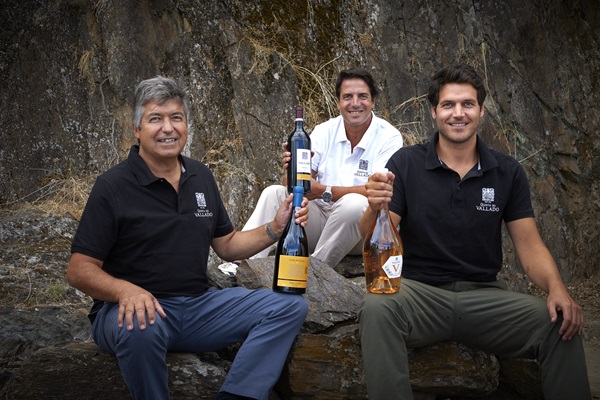
João Ferreira Álvares Ribeiro: “Our winemaking philosophy is rooted in a unique perspective: we’re not only producers but also consumers, which shapes our approach significantly. Unlike the profiles cherished by past generations, we now favour wines with lower alcohol content, offering elegance, freshness, and finesse. Having grown from a tradition of robust port wines, where ‘more’ often meant ‘better’ (think higher tannins, extended ageing, and barrel influence), we now believe that ‘less is more’ – without losing the rich heritage and terroir of the Douro region.
‘We honour the knowledge passed down through generations while embracing an evolution toward wines that align with contemporary tastes’“We honour the knowledge passed down through generations while embracing an evolution toward wines that align with contemporary tastes and the potential of the Douro, especially for younger, lighter, and white wine styles. This philosophy combines respect for our heritage with an openness to the region’s future possibilities.”
‘We aim to set a positive example’Daniel Niepoort: “Our philosophy hasn’t changed dramatically from the past. However, with Niepoort’s significant growth over the past 30 years and the variety of projects we’ve undertaken, it’s become more important to focus on the structure and long-term vision of the company. While innovation is part of our growth, we remain deeply committed to producing exceptional port wine, preserving its traditions and the time-honoured quality of long ageing, even in an increasingly fast-paced and technological world.
“Beyond creating excellent wines, teas, and kombuchas, our core mission is simply to do good. Niepoort is often looked up to in Portugal, which is why we aim to set a positive example. We want our vineyards to be so well-cared-for that others come to learn from our practices – using no herbicides, promoting biodiversity, and integrating animals, for instance.
“We strive to demonstrate the value of avoiding black-and-white thinking, particularly when sustainability is concerned. Although some of our grape suppliers are not certified organic, their practices can often be more sustainable than certified organic viticulture. We believe wholeheartedly in organic principles, yet recognise that it’s not a perfect solution, and that we all still have much to learn.
“Ultimately, we aim to create life rather than simply taking from it. This includes a commitment to trees, animals, and people, as well as to shedding light on questions in viticulture and agriculture. For example, why are grapes often the cheapest part of a bottle of wine? Shouldn’t that be different? Our philosophy, therefore, is not only to make high-quality wine – wine that deserves its price – but also to produce excellent wines that are accessible and can be enjoyed by people from all walks of life.”
‘These uncertain times demand fresh solutions’
How does your approach differ to your father’s?
João Ferreira Álvares Ribeiro: “Our approach differs significantly from that of our parents and grandparents. While they emphasised traditional richness and intensity, we focus on refining these qualities to create lighter, fresher expressions. This generational shift is part of a broader evolution in the Douro, one that still respects its established reputation in port wine but also confidently explores new frontiers. We’re bridging a generational gap, honouring our heritage while being open to new interpretations that reflect a nuanced understanding of both production and modern consumer preferences.“Additionally, with the groundwork of the Douro Boys already laid, we understand the strength of our association and the value it brings. Yet, the market has evolved over the past 20 years, becoming more dynamic and digital, and so must we. Our communication strategy has adapted to reach a broader and more diverse audience, no longer relying solely on a few high-impact publications like Decanter. Today, there’s a greater variety of reviewers, media, and consumers we engage with, necessitating a more agile, forward-looking approach. These uncertain times demand fresh solutions and resilience, and we’re prepared to navigate these changes, leveraging our foundation to embrace new opportunities ahead.”
‘We’ve evolved to embrace new responsibilities as Niepoort has expanded’
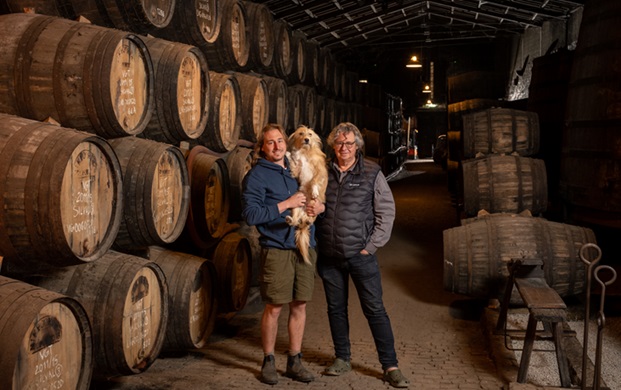
Daniel Niepoort: “Our philosophy aligns closely with that of the previous generation, yet we’ve evolved to embrace new responsibilities as Niepoort has expanded. There’s a stronger focus on Niepoort’s structure today and on setting a standard of quality and integrity that others look up to. This includes both maintaining the rich tradition of port wine and adapting to a changing world by promoting sustainable practices that respect the land and future generations. We continue to honour our roots but also seek to shine a light on the broader issues in viticulture and set an example in ways that go beyond just making great wine.”
Inspiring examples
Here are three examples showing great ideas born from sharing a table and bottles of wine.Friends Trips
Famous wine bars from all continents will bring their guests to the Douro Valley for a once-in-a-lifetime experience. During these ‘Friends Trips’, regular guests – from Brazil to Japan – will visit the historic quintas, learning, tasting and selecting wines themselves for their favourite bar. The first ‘Friends Trip’ will take place this month with guests from Germany led by ‘rockstar’ sommelier Willi Schlögl from Freundschaft bar in Berlin.
“The trips will allow new friends to discover the rich heritage, stunning landscapes and exceptional wines of the Douro Valley for themselves,” the Douro Boys say. “We want them to savour our port and table wines in the place where they were painstakingly handcrafted while also being able to decide what they would like to keep so they have mementos of the Douro in their cellar.”
Luxury of Time
What really makes the wines and ports from the Douro Valley so different is their eternal ageing potential. Very rare ports – dating from the 1860s – as well as matured reds from recent decades provide ample evidence of that uniqueness that is created by the soils, steep terraces and autochthonous varieties of the Douro Valley. In a mind-blowing tasting, this “Luxury of Time” was highlighted recently at the 20th anniversary of the group. Now, the Douro Boys will carry this experience to one of their most important and emotionally closest markets, Brazil - with exclusive masterclasses in Rio de Janeiro and São Paulo.
“We consider our precious matured wines and ports to be treasures. They get better, more harmonious and balanced with every year in the cellar. In this fast-moving, digital age, it is an eye-opening discovery for a new generation of consumers to savour the value of wines you store and wait for the moment that they are fully developed.”
Anniversary wines
To celebrate its 20th anniversary in 2023, the Portuguese winemakers’ group created two exceptional wines: a red and a tawny port. These special cuvées, each blended from the best barrels of the five wineries, deserved a special presentation. The Austrian creative agency upart won the tender. Their design for the labels and packaging has now been honoured with the Austrian State Prize for ‘Smart Packaging 2024’.
The award-winning design is characterised by a unique bottle-wrapping label. Five stripes, each representing one of the wineries, shape the front appearance. The gaps between the stripes symbolise the Douro River, emphasising the deep connection of the winemakers to their region.
“The biggest challenge was to unite five winemaker personalities on one label without neglecting the individuality of each of them,’ explains Daniel Frixeder, managing director of upart. “The result is a design that not only stands out visually, but also tells the story and the joint work of the Douro Boys for their region.”
Paper labels (Marzek Druck, Austria) were applied to a total of 1,350 magnum bottles of the Anniversary Cuvée 2021 red wine. This wine is currently priced – if available – at between €650 and €800 per magnum.
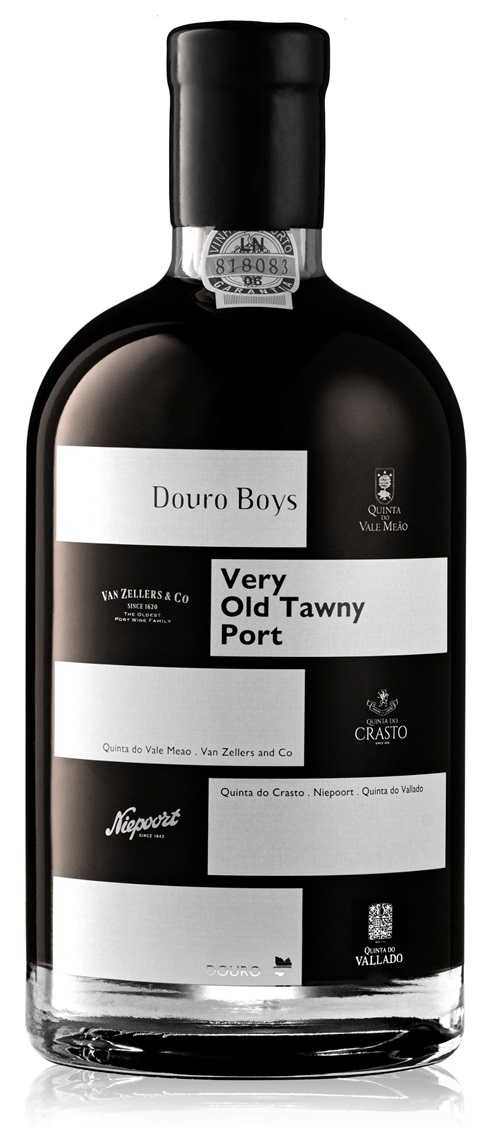
For the exceptional Anniversary Very Old Tawny Port (950 bottles), the label was screen-printed directly onto the bottles. The price of this rarity, which was composed of barrel-aged tawnies dating to the 19th century, is between €700 and €800 per bottle (750 ml).
The beautiful wooden crates created for the wines reflect the meandering course of the Douro.
Despite the hefty price tags, the wines have also been a commercial success: 1,350 magnums of the red cuvée and 650 bottles of the exclusive tawny were sold all over the world within 90 minutes during the first presentation of the wines in April 2023.

 English
English French
French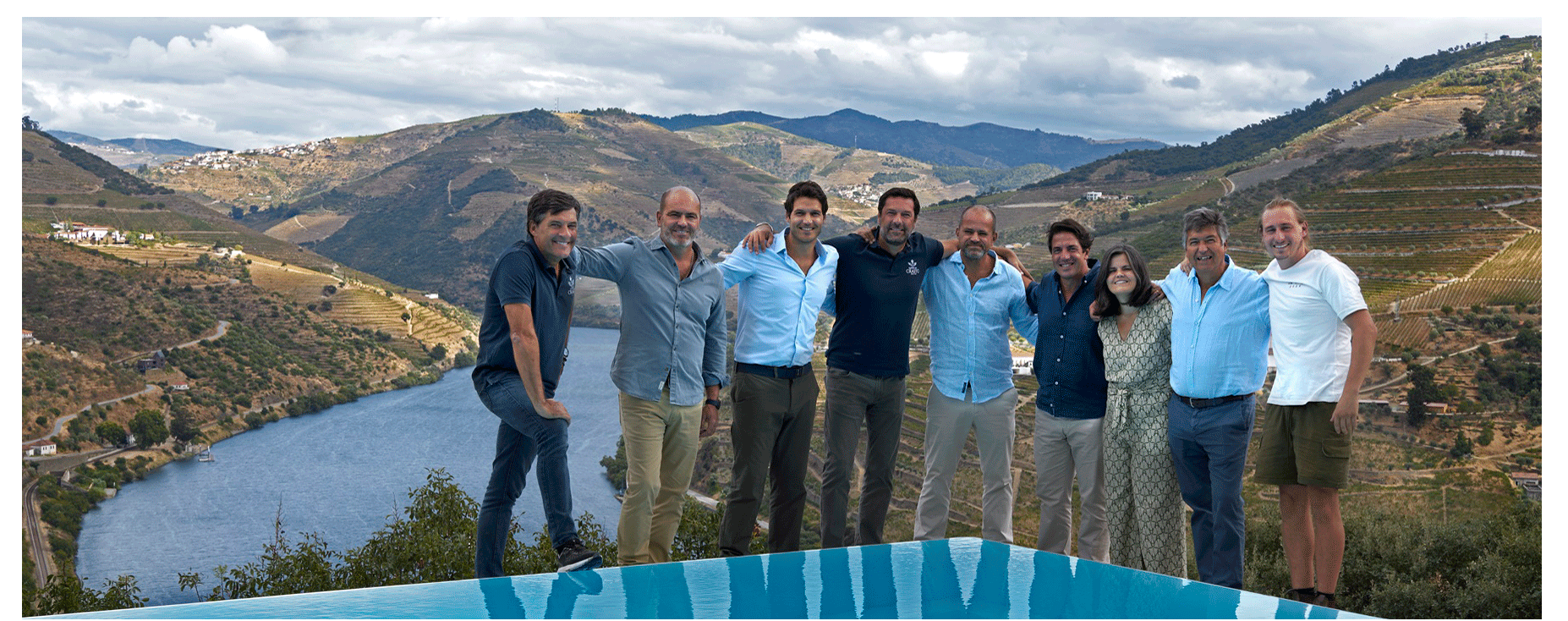







.png)


